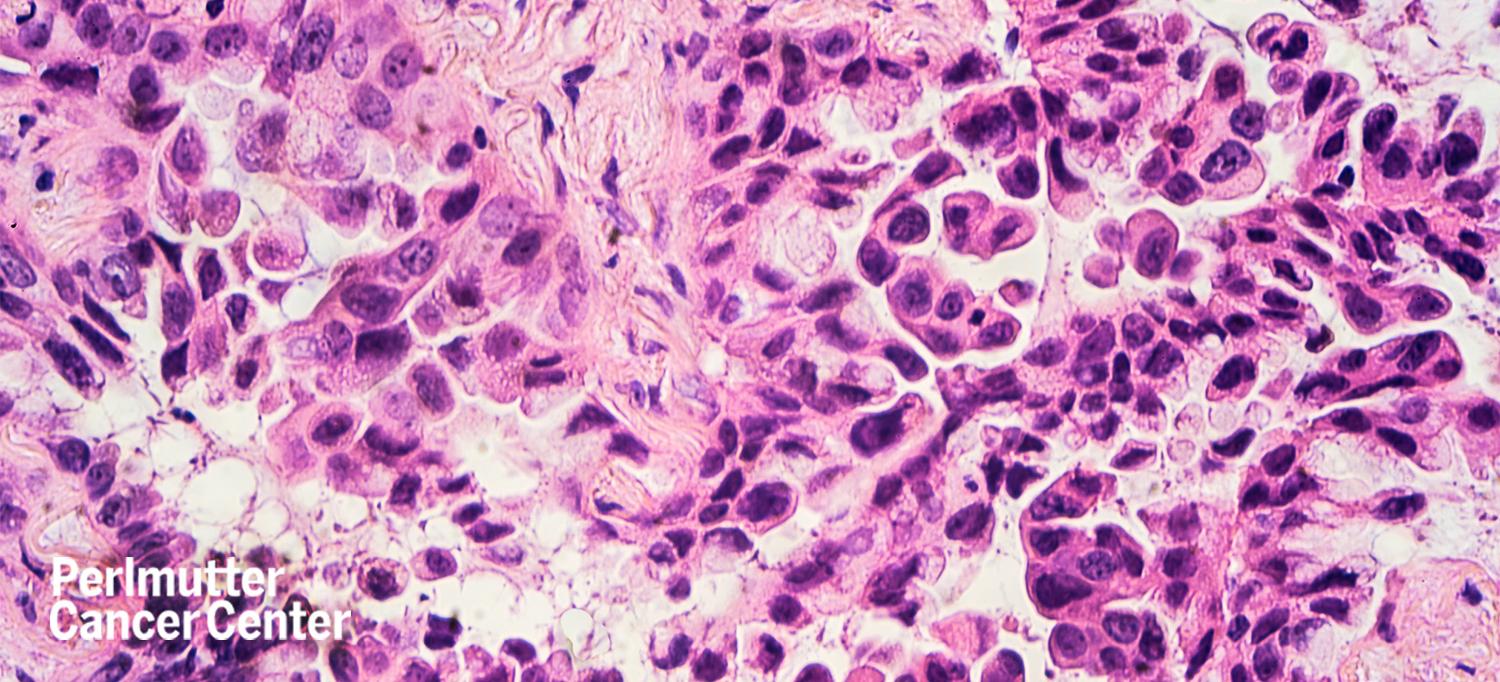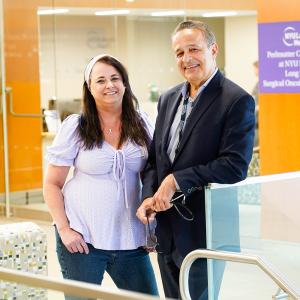
Photo: rightdx/Getty
Adenocarcinoma of the lung, a type of non-small cell lung cancer (NSCLC), is the most common form of lung cancer. While typically found in smokers, lung adenocarcinoma is the most common type of lung cancer in nonsmokers, women, and people younger than 45.
Elaine Shum, MD, a medical oncologist at NYU Langone Health’s Perlmutter Cancer Center, is conducting a phase 1/2 first-in-human study of the highly selective EGFR inhibitor BLU-701 in people with stage 4 lung adenocarcinoma with mutations in the EGFR gene.
Chemotherapy is the current standard of care for people with EGFR-mutant lung adenocarcinoma that has progressed after first-line therapy with a tyrosine kinase inhibitor called osimertinib. However, there are no approved targeted therapies if osimertinib resistance develops. BLU-701 is an oral fourth-generation EGFR tyrosine kinase inhibitor that is highly selective for tumors with EGFR exon 19 deletion or L858R point mutations and designed to potentially overcome osimertinib resistance.
Perlmutter Cancer Center is one of the first sites in this international HARMONY trial to offer BLU-701 to patients.
“There is truly an unmet need for targeted therapies for patients with advanced EGFR-mutant lung adenocarcinoma,” says Dr. Shum, also an assistant professor in the Department of Medicine at NYU Grossman School of Medicine. “This trial is looking to fill that space.”

